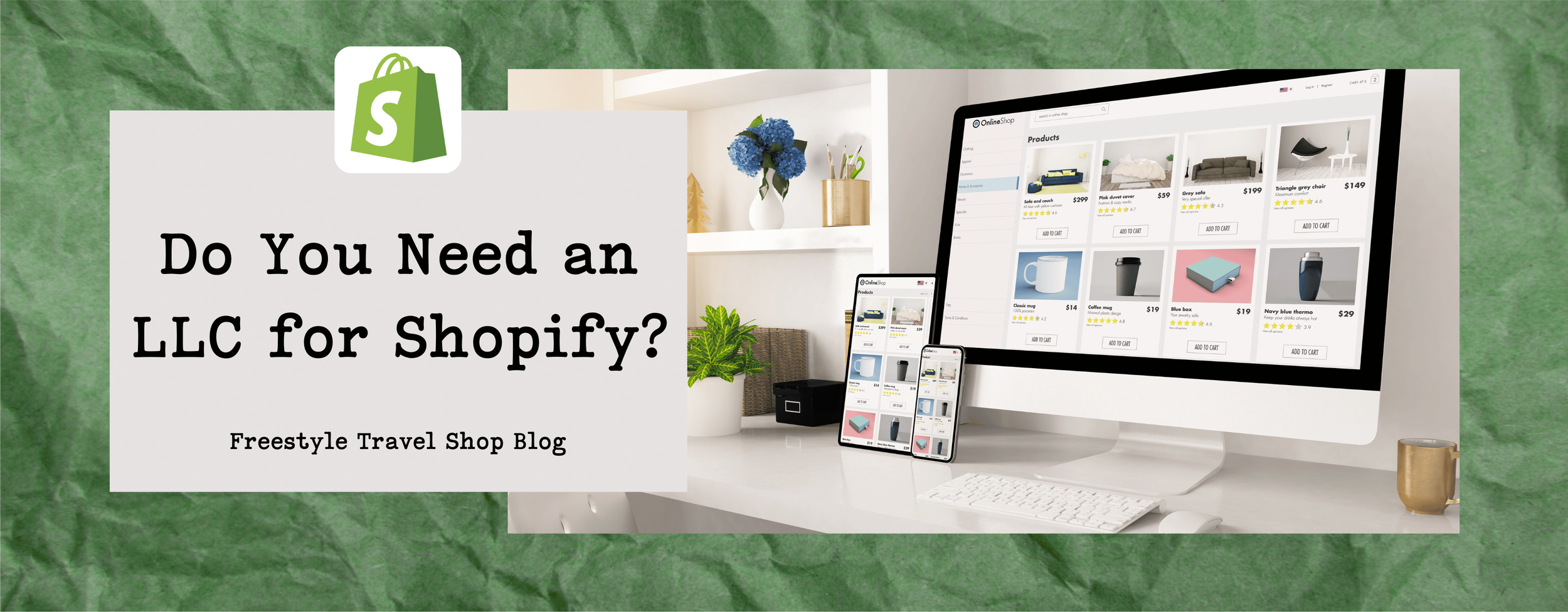Do You Need an LLC to Start a Shopify Store? Understanding Legal Structures
Starting an online business can be an exciting venture, especially with platforms like Shopify simplifying the e-commerce process. However, one critical aspect often perplexing for new entrepreneurs is deciding on the legal structure of their business. A common question is, "Do I need an LLC to start a Shopify store?" This blog post will delve into this query, providing a clear, fact-based understanding of legal structures, focusing on the LLC (Limited Liability Company) model, particularly in the context of starting a Shopify store.
What is an LLC?
Before diving into whether you need an LLC for your Shopify store, let's first understand what an LLC is. An LLC, or Limited Liability Company, is a business structure allowed by state statute. LLCs are popular among small business owners due to their flexibility and protection. This structure provides personal liability protection, meaning your personal assets are typically not at risk if your LLC faces bankruptcy or lawsuits.
Advantages of an LLC for a Shopify Store
Personal Asset Protection: The most significant advantage of an LLC is the protection of your personal assets. This means if your Shopify store faces legal action, your personal property, like your home or car, is usually protected.
Tax Flexibility: LLCs enjoy pass-through taxation where the business income is reported on your personal tax return, potentially leading to tax benefits.
Credibility: An LLC can enhance the credibility of your store. Customers and suppliers may perceive your business as more legitimate when it’s an LLC.
Business Growth and Funding: If you plan to expand your Shopify store, having an LLC can make it easier to obtain funding from investors or loans from banks.
Is an LLC Required for Starting a Shopify Store?
Legally, you do not need an LLC to start a Shopify store. Shopify allows you to create and run a store regardless of your business structure. Whether you’re a sole proprietor, part of a partnership, or decide to form an LLC, Shopify supports all these structures.
When Should You Consider an LLC for Your Shopify Store?
Liability Concerns: If your store sells products that could potentially lead to legal issues, forming an LLC can protect your personal assets.
Revenue and Profitability: As your store grows and generates more revenue, the benefits of an LLC, like tax flexibility and asset protection, become more significant.
Professionalism and Brand Image: If you aim to build a long-term brand, forming an LLC can boost your professional image.
Planning for Business Growth: If you have plans to scale your business or seek external funding, an LLC can be advantageous.
Steps to Form an LLC for Your Shopify Store
Each state in the U.S. has its own rules and processes for creating a business. It’s crucial to research and understand the specific requirements and steps in your state to ensure compliance and successful registration of your LLC.
Choose a Business Name: Your business name should be unique and comply with state regulations.
File Articles of Organization: This foundational document outlines your LLC's basic details. It’s a formal declaration of your business's existence to the state.
Create an Operating Agreement: This internal document details the ownership and operating procedures of your LLC. It’s not mandatory everywhere but highly recommended.
Obtain Necessary Licenses and Permits: Depending on what you’re selling and where, you might need specific licenses and permits.
Apply for an EIN: The Employer Identification Number (EIN) is essential for tax purposes and is used to identify your business entity.
Conclusion
While forming an LLC for your Shopify store isn't a legal requirement, it offers significant benefits, particularly as your business grows. An LLC provides personal asset protection, tax advantages, and can enhance your store's credibility. The decision to form an LLC should align with your business needs, potential risks, and future plans. Always seek advice from legal or financial professionals when making this decision. Embracing the right legal structure is about securing the future of your business and fostering its sustainable growth.
Hey, I’m Nicole!
Following my successful national park-themed Etsy shop, I'm using social media to share my journey and everything I know, inspiring and empowering fellow crafters and small business owners.


